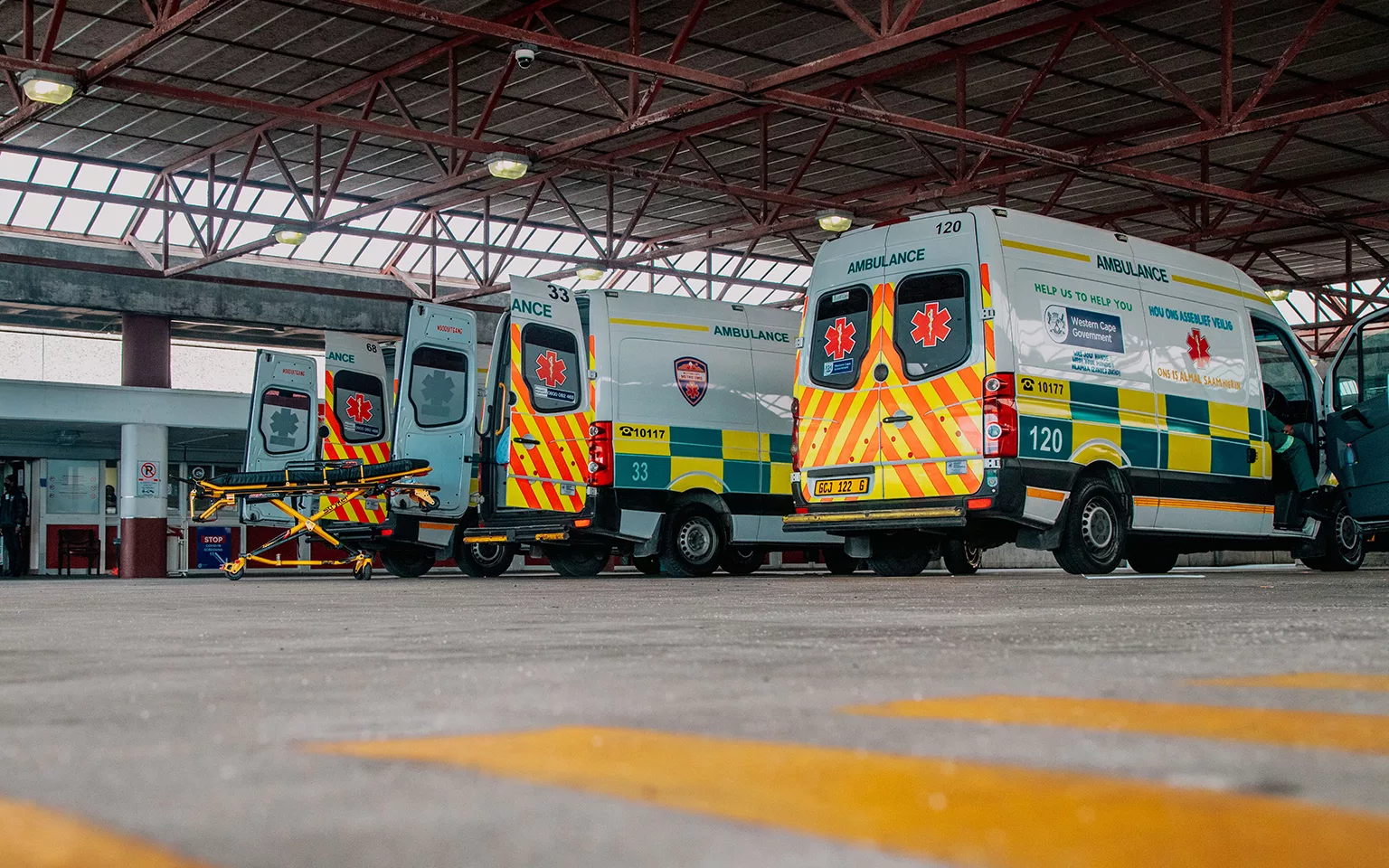Bhavna Patel, CEO of the famed Groote Schuur Hospital, advocates strengthening the healthcare system and developing a renewed strategy to meet the needs of patients.
STRENGTHENING THE SYSTEM
In December 1967, local South African cardiac surgeon Christiaan Barnard became an international superstar virtually overnight when he performed the world’s first successful human heart transplant.
It was a daring and ground-breaking operation in which Barnard transplanted the heart of a fatally injured 25-year-old, Denise Darvall, into Lewis Washkansky, 53, who was suffering from heart complications brought about primarily by his diabetes.
A landmark achievement that received immense public attention worldwide and remains the most publicised event in medical history, it was carried out by Barnard in the Charles Saint Theatre at Groote Schuur Hospital (GSH).
“GSH boasts a proud 85-year history of service excellence, gaining global fame following the first successful human heart transplant by Christiaan Barnard,” begins Bhavna Patel, CEO of GSH since 2013.
Today, tens of thousands of grateful individuals have received this life-saving surgery; moreover, the majority of heart transplant patients have gone on to enjoy life for many years after the operation, including its subsequent medical treatment.
“The hospital continues to maintain such innovation, with many firsts both within South Africa (SA) and internationally.”
GSH is a tertiary and quaternary health service facility opened on 31st January 1938, whose mission is to provide outstanding public healthcare to the population of SA’s Western Cape province and beyond.
It also promotes excellence in teaching and research, as the primary teaching platform for both undergraduate and postgraduate students at the University of Cape Town (UCT), ranked according to several internationally compiled and authoritative indexes as the best university on the African continent and amongst the best 200 universities across the world.
Located in the Observatory, just a few minutes away from the main UCT campus, GSH has a symbiotic relationship with the university, where Barnard himself qualified in medicine in 1946 before establishing a successful open-heart surgery programme at the hospital, and lays claim to international renown beyond the historic feat he achieved in 1967.
This is to say that GSH is an internationally celebrated research institution, highly regarded for its trauma unit, anaesthesiology and internal medicine departments. It also draws many visiting medical students, residents and specialists every year, who come to the hospital to gain further experience in the various fields of endeavour in which it engages.
“GSH boasts a proud 85-year history of service excellence, gaining global fame following the first successful human heart transplant by Christiaan Barnard”
Bhavna Patel, CEO, Groote Schuur Hospital
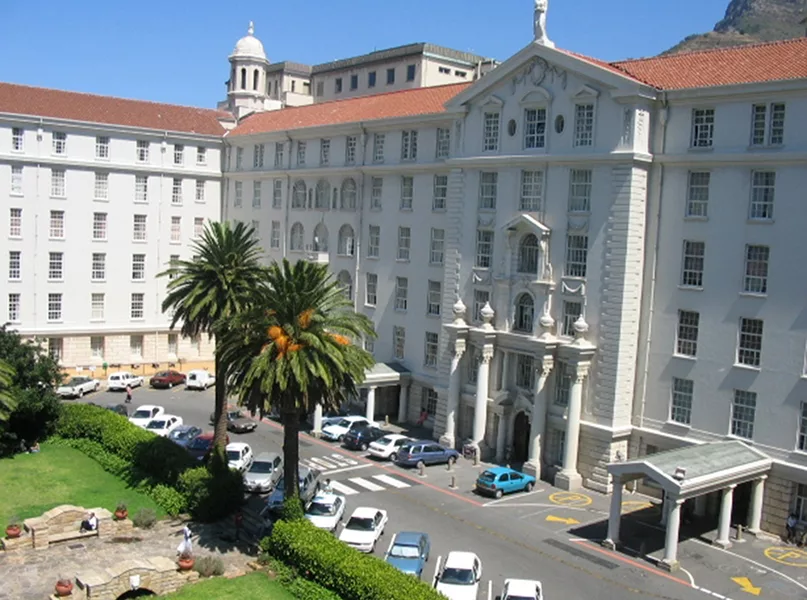
GREAT BARN
GSH and UCT are two highly prominent buildings in Cape Town, which is not only home to the friendly, fun-loving and laid-back people that inhabit it, but also some of the world’s most beautiful scenery.
The hospital itself proudly sits on the picturesque slopes of Devil’s Peak at the foot of Table Mountain, an eminent landmark overlooking SA’s most famous city.
Groote Schuur, Dutch for “great barn”, is named after the settler farm on which the hospital and its neo-classically styled buildings now stand, against the backdrop of Cape Town’s iconic mountain range.
Clinical, teaching and research activities are provided on the estate of the hospital by GSH, who attends to around half a million outpatients every year.
There are also just over 1,000 inpatient beds to cope with around 75,000 admissions annually, with 25 theatres performing 23,000 operations on a yearly basis.
“We also have a Level 1 trauma centre attending to 1,200 major trauma cases per month, as well as a medical emergency centre treating 4,300 patients monthly,” adds Patel.
GSH’s patients are mainly from the Western Cape province of SA, but due to its specialised services, patients from other provinces are also referred to the hospital.
Many of these patients live in poor socio-economic conditions that fail to support the promotion of health, and are unable to afford healthcare, instead relying on the availability of public services.
This is one of a number of external challenges in the South African health industry, starting with the inequity between private and public health services and facilities, which respectively serve 20 and 80 percent of the population but use 80 and 20 percent of the resources.
The COVID-19 pandemic and other environmental challenges have also left many South Africans without jobs and financial support, exacerbated by the ongoing cost of living crisis.
Internally, GSH is challenged by the increasing patient demands that the hospital is experiencing for its services, which have to be provided within reduced budgets by a small number of overworked staff.
“The space at present is challenging internally, externally and societally, and requires a rethink for its future sustainability”
Bhavna Patel, CEO, Groote Schuur Hospital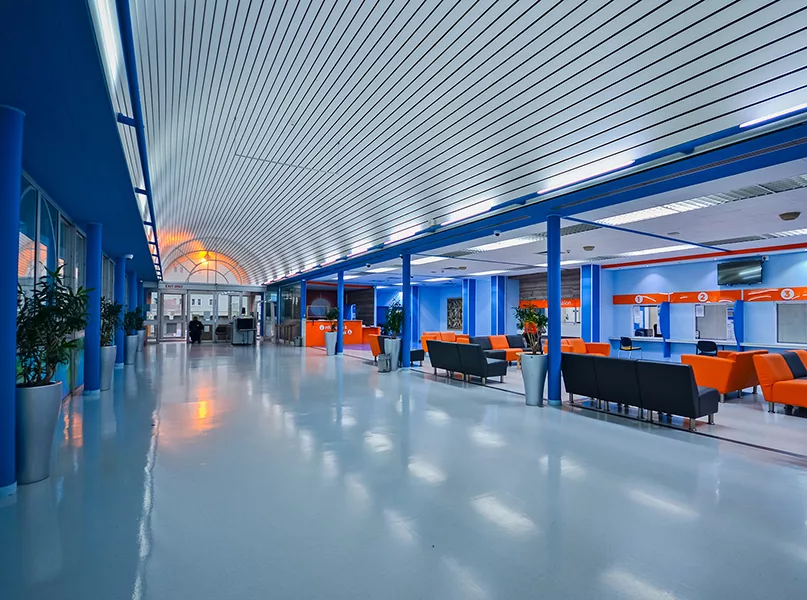
RETHINK AND RESTRUCTURE
The effects of the COVID-19 pandemic significantly affected GSH with patient care curtailed to admit patients that tested positive for the virus, resulting in around 10,000 missed elective surgeries as well as many lost outpatient appointments and radiological investigations, among others.
This gave rise to an unparalleled healthcare system crisis not only in SA but throughout the world.
“Unfortunately, it is impossible to just pick up where we left off in March 2020,” Patel tells us.
“This period is challenging in that we are facing many patient pressures, and trying to plan in such a context becomes difficult.”
The many backlogs caused by the pandemic required a critical rethink and restructure of GSH’s health services, with an internal reorganisation of resources and a firmer relationship with its referral centres.
To be sustainable in the long term, a renewed strategy was therefore adopted by GSH to plan for resurging, recovering, and resetting its services.
“We’ve got to be adaptable to things like COVID-19. The pandemic brought about an immediate need for change, and we have to be prepared and adaptive to such changes in the future, while at the same time trying to recover and stabilise our current services,” says Patel.
Planning for resurgence involved developing an implementation plan that was flexible to the change in the number of COVID-positive patients.
Recovery addressed some of the lost needs and reviewed how these could be prioritised, whilst resetting will require a rethink of the services and how to move forwards, as this is not just a hospital response but a health system response.
To this end, GSH has commissioned an additional two theatres along with 20 beds to create a Day Surgery facility and ease the backlog of cases.
“We raised funds to address some of the surgical cases, in addition to our normal theatre cases. Thus far, we have achieved our target of 1,500 cases over the past 10 months and will continue with the project over the next two years,” informs Patel.
“Over the next two to three years, we hope to operate on 3,000 more patients. After the project period, the facility will continue to function as a Day Surgery unit.”
LEARNING LESSONS
To relieve the amount of pressure being applied to the entire healthcare system, Patel acknowledges that GSH also needs to learn from the lessons of the pandemic and function as multidisciplinary teams across the various levels of care.
“Some hard decisions will have to be made. Primary care needs to be strengthened, current silos need to be broken down, and our teams need to work together to strengthen the health system,” she emphasises.
“The focus ahead has to be on strengthening the health system, and looking at it more holistically from a patient journey perspective, from the time the patient enters the system at a primary care level through to tertiary or quaternary care.” Indeed, patients are only admitted to the facility if they have been directed to do so by a primary or secondary healthcare worker or facility.
This holistic view of the patient journey reflects GSH’s reputation since inception as “the hospital of the people”, with suppliers that are committed to ensuring its stock levels are never low and are responsive to patient needs, and staff that have embraced a sense of pride about being employed at the hospital.
Together with very active research opportunities and management support, GSH provides an environment where employees feel safe to explore and engage in seeking innovation and change, leading to excellence and a willingness to do better.
“We have a permanent staff complement of 3,750, but also appoint contract staff for certain services such as security, cleaning and laundry. In addition, due to significant nursing shortages, locum staff are also appointed. Without our people, the hospital would not survive,” Patel affirms.
Staffed by highly experienced individuals, who can also be seen mentoring UCT medical school students that are completing the final period of their training, the standard of care is therefore extremely high at the hospital.
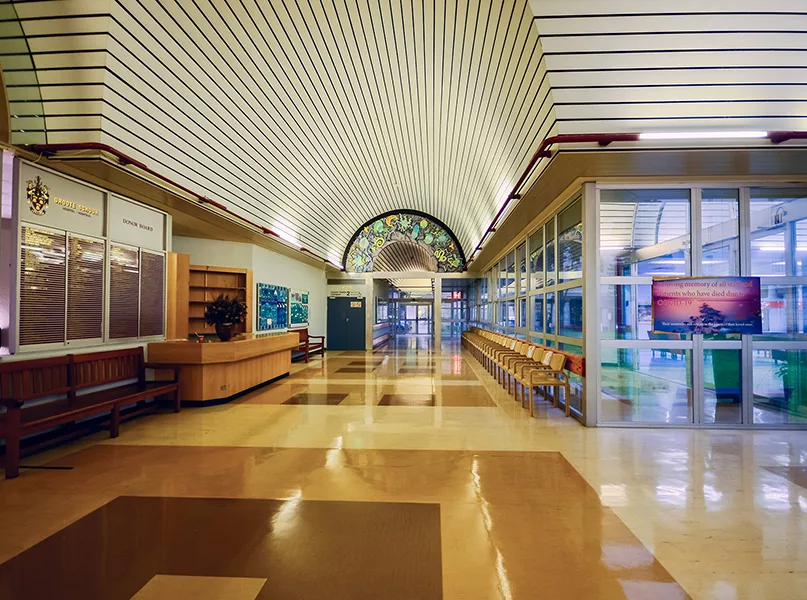
SUPPORT FOR STAFF
The pandemic placed significant pressures on GSH’s employees, however, who had to attend to ill patients while at the same time dealing with their own illnesses, concerns about loved ones, and loss of life due to COVID-19.
Despite this, they remained a true credit to their profession and continued to treat patients, with GSH understanding these pressures.
As such, in recognition of the need for self-care and support, the hospital appointed a psychologist and an occupational therapist, who together with other counsellors and the psychiatric team spoke to staff members daily, both on an individual and a collective basis.
“This proved to be so beneficial that we opened a wellness centre for our staff that includes the psychological support aspects (both individual and teams), a small gym, yoga, self-defence and many other activities for their health,” reveals Patel.
“The centre has been well supported and has improved morale at the hospital.”
Given the huge shortage of nurses and the need to maintain competencies to function effectively, GSH also celebrated International Nurses Day in 2022 with the opening of a Nursing, Teaching and Learning Centre.
Various learning modules have been set up at the centre for nursing staff, who are educated and assessed on both the theoretical and practical components of these modules.
“This creates a culture of ongoing learning and teaching for the staff, and need not be restricted to nurses,” Patel says, citing the hospital’s vision to be the leading academic hospital in Africa with international standing.
As a government-funded teaching hospital, GSH is renowned as the training ground for some of the best doctors, surgeons and nurses in SA.
GSH currently houses several clinical academic departments and plays host to the Heart of Cape Town Museum. After the hospital built new wings in the years following the ground-breaking operation, the theatres in which it took place were preserved for posterity in the form of the museum, which is dedicated to the achievements of Barnard and the world’s first successful human heart transplant.
The museum not only stands as a testament to the quality of South African medical practitioners, but also serves as a reminder that organ donors are heroic in their selfless commitment to aiding others in their hour of need.
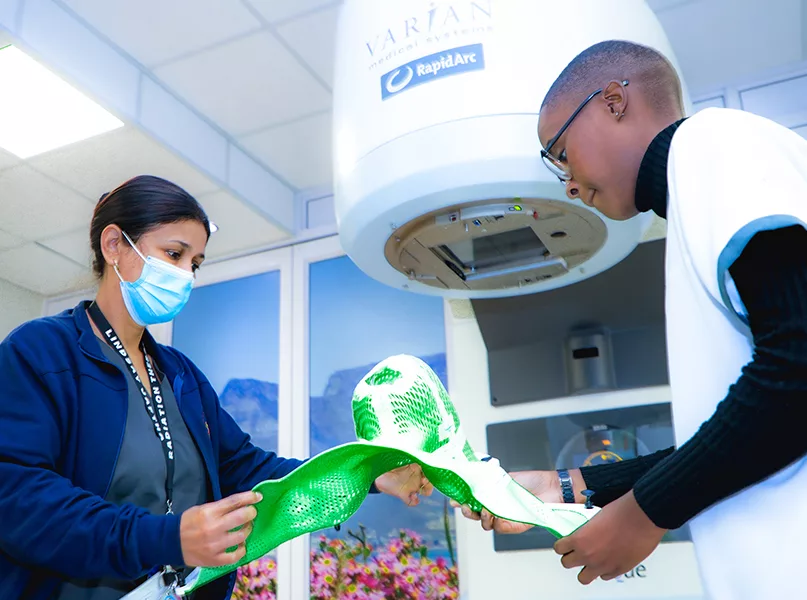
SET FOR THE FUTURE
Another facility that GSH recently opened is the Adolescent Centre of Excellence (ACE), where adolescent outpatient services and psychological support are offered jointly by paediatric and adult clinicians.
This, together with the hospital’s existing adolescent inpatient ward, is the only such service of its kind in SA, recognising that many paediatric patients were being affected by chronic medical conditions and reaching adolescence without being transitioned into adult medical services.
The Diabetes Centre, meanwhile, was set up within the hospital to focus on multidisciplinary care for the increasing number of diabetic patients, offering a one-stop care facility.
As well as opening several facilities, GSH implemented a number of innovations in 2022 including a positron emission tomography-computed tomography (PET-CT) machine for the treatment of cancer patients, and the da Vinci Xi surgical robot, becoming the first public facility in Africa to provide assisted robotic surgery.
“Surgeons, nurses and technical staff have been trained to perform not only urological procedures, but also gynaecological, colorectal, and cardiothoracic procedures,” Patel shares.
GSH also continues to be the only public hospital in SA that offers heart, liver, lung, and kidney transplant services, with a transplant unit headed by a transplant specialist set up to bring together all the physicians and surgeons to work collaboratively to increase the number of operations done.
The focus on infection prevention and control (IPC) likewise energised the need to appoint a specialist to manage the IPC unit and focus on monitoring this part of the service.
With all these additional innovations, facilities and units in place, GSH’s focus for the next three years is firmly on strengthening the health system and developing a renewed strategy to meet patient needs.
“For the coming year, plans will be put in place and teams will be set up to start exploring how this could function on a practical level,” concludes Patel, whose personal vision is to see GSH continue to be a leading innovative healthcare institution, and a centre of excellence where both staff and patients feel valued and cared for.
“This is something that I would really like us to sustain going forwards.”
GROOTE SCHUUR HOSPITAL PARTNERS




